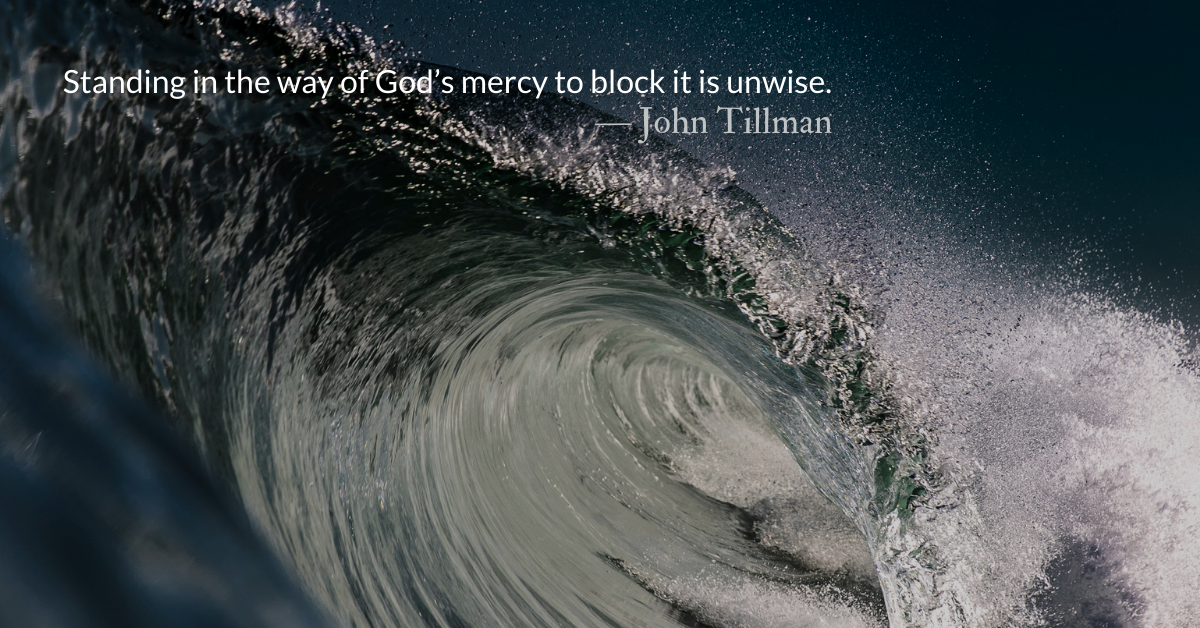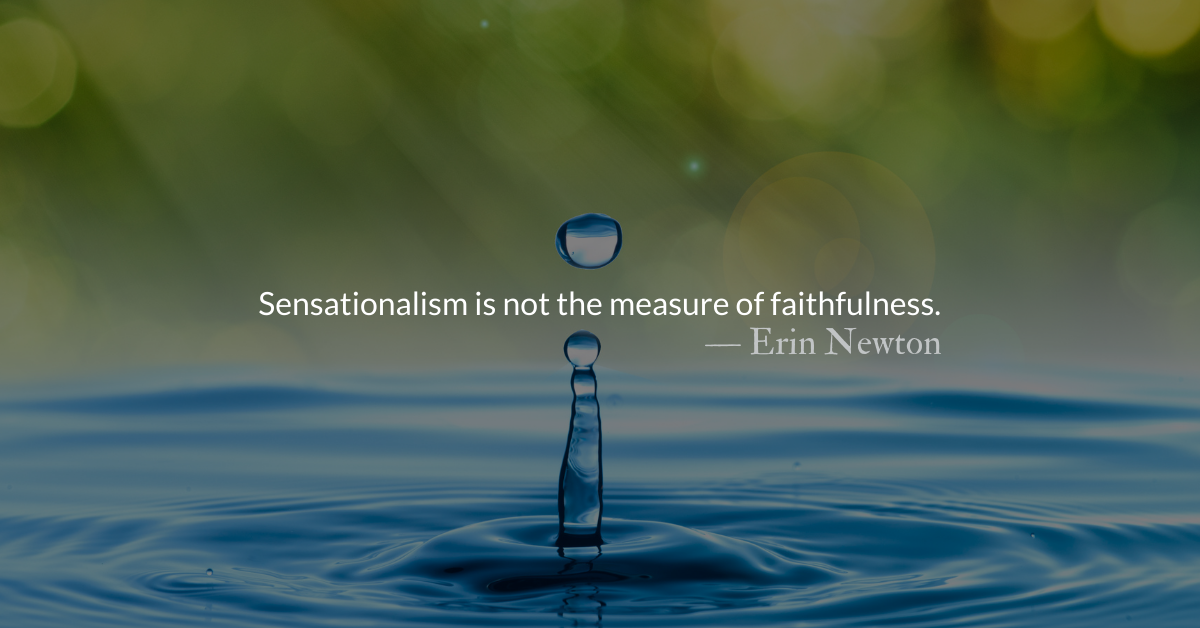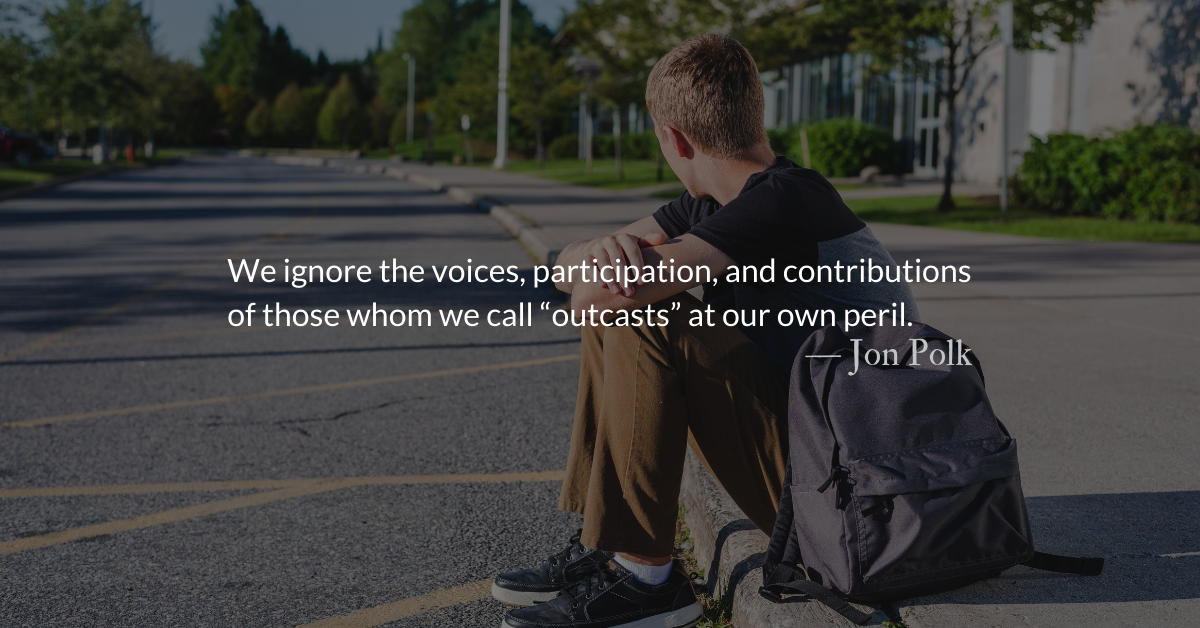Scripture Focus: 2 Kings 14.23-25
23 In the fifteenth year of Amaziah son of Joash king of Judah, Jeroboam son of Jehoash king of Israel became king in Samaria, and he reigned forty-one years. 24 He did evil in the eyes of the Lord and did not turn away from any of the sins of Jeroboam son of Nebat, which he had caused Israel to commit. 25 He was the one who restored the boundaries of Israel from Lebo Hamath to the Dead Sea, in accordance with the word of the Lord, the God of Israel, spoken through his servant Jonah son of Amittai, the prophet from Gath Hepher.
26 The Lord had seen how bitterly everyone in Israel, whether slave or free, was suffering; there was no one to help them. 27 And since the Lord had not said he would blot out the name of Israel from under heaven, he saved them by the hand of Jeroboam son of Jehoash.
Reflection: When God Has Mercy…Will We?
By John Tillman
Jeroboam II became one of the most powerful and prosperous kings of Israel despite his unworthiness. Although he shared no familial line with the first Jeroboam, he shared his sin and wickedness.
The Lord’s compassion for the people, not the righteousness of their leader brought prosperity to Israel. However, that prosperity did not extend to all levels of society. Condemnations in Hosea and Amos record the extreme wealth of Israel’s leaders and the extreme suffering of the poor.
Another prophet serving during this time was Jonah son of Amittai. Chronologically, it is his first appearance. Jonah delivered the good news of God’s mercy to the wicked king of his own country. He carried God’s word to Jeroboam II that God would expand their borders and power. Later, when God wanted to send a message of mercy to Jonah’s political enemies in Nineveh, Jonah refused. His partiality led to his encounter with the fish, but his desire for vengeance remained undigested by the fish’s innards.
Jonah seemed to believe mercy should be limited to his own tribe and country while everyone else burned. How many of us are like him?
Do we desire mercy for ourselves but not our enemies?
Mercy for our leaders, our tribe, our institutions but not those who oppose us?
Would we say with the sons of Zebedee, “Let us call down fire on them!”?
Would we say with Jonah, “I didn’t want you to forgive them!”?
Do we mistakenly think we deserve God’s mercy while others don’t? Our leaders are no more deserving, our tribes are no more righteous, our institutions are no more worth saving.
God chooses to have mercy on whom he will. We can be channels of that mercy, like Abram interceding for Sodom, Moses interceding for the people, or dozens of other biblical examples.
However, standing in the way of God’s mercy to block it is unwise. God’s mercy may overwhelm us like it did Jonah, or it may destroy us like the officer trampled by the crowds running out to the spoils announced by the four lepers.
Jonah held his bitterness so deeply that the depths of the sea couldn’t wash it away and the sun couldn’t burn it away. How deeply will we hold on to ours?
One thing is certain, God keeps his merciful promises, even when we are unworthy vessels and unworthy recipients.
Divine Hours Prayer: The Call to Prayer
Worship the Lord in the beauty of holiness; let the whole earth tremble before him. — Psalm 96.9
– From The Divine Hours: Prayers for Summertime by Phyllis Tickle.
Today’s Readings
2 Kings 14 (Listen – 5:06)
2 Timothy 4 (Listen – 2:48)
Read more about To Wicked Kings, Foreign and Domestic
We must abandon Jonah’s sinful wish to weaponize God’s wrath.
Read more about Beyond Selfish Thankfulness
A God who does not treat us as we deserve is also a God who often does not treat our enemies as we might feel they deserve.






